Questiondear expert
i recently got a 5 month old husky/golden retriver dog named Max, from a lady who didn't quit train him like he should have been. my husband is getting frustrated with him but i love him to death and want to make it work. he is potty trained realy well and kinda knows how to sit and comes to me when i call him, but that is about it. so what i was wondering is. how long about will it take for him to adapt to his new home and how can i train him better since he isn't quit a young puppy anymore, also how do i fix his bitting habit when i play with him?
sincerly,
Mrs. Soriano
AnswerFirst, huskies are notorious for being trouble, and while training can help, it is a constant struggle. Husky owners are an interesting breed of humans who prize intelligence and critical thought as well as creative disobedience over a dog who comes when called. So, make sure to set your expectations apprpriately. As for further training, a dog needs about 2 weeks to adjust to a new environment. You can enforce general hiouse rules, but don't go after too much real training.
After that, start training. I recommend professional training, there is a wealth of knowledge with professionals, and unless you are willing to invest weeks in research, its cheaper and faster to find someone else to help show you the right things. As for the play biting, I've answered this before for a 7 mos old, so I'll copy that post here:
Valentina,
This is a past reply I've written on this topic, it doesn't apply completely here, but keep reading, and I'll address your situation a little more precisely: (This other situation was at a puppy around 10 weeks)
<<< Biting and nipping on people is a way of play - it's how a young pup interacts with the world around it. Some are more "mouthy" than others, and it can be caused by a myriad of reasons, one of which is leaving the litter early (anything before 8 weeks usually shows up in this behavior). There are several ways to deal with it, and you are on the right track recognizing it's a game.
First, understand that it is a natural method of interaction and desire to play. When my first husky started with this, we embraced it. Of course I want my dog to play with me, and I want that bond there, so why not encourage it? Sounds a little counter-intuitive, but dogs do seek to understand the rules, so rather than prevent the "game", give it some rules. What we did (on the advice of our trainer) was bought some thick leather gloves (from Ray Allen Mfg - http://www.rayallen.com/ramCart/cartFrame.htm?cartDetail.php?prodID=181~mainFram... - $19.95 - I still have the gloves 3 years later).
Now, here's how the game went. Dog nips at you. Say NO strongly and back away. The dog should react, and some dogs will react by trying harder. Ignore that action, and go get your gloves. Put them on and begin to wrestle and play. Then, when you are done (which could be just a few seconds or several minutes later), you get up and put the gloves up. Very quickly the dog will realize that the gloves mean time to play, and that without them, you don't want to. To this day, my 3 year old husky will walk up, gently mouth me in a request to play, and I'll grab the gloves. We'll wrestle and she loves it. I can know play with her without the gloves some too - she knows she can't bite hard though, and if she does - it's the same response "NO" and then withdraw from the activity.
By doing this method, you are not only giving the negative feedback (the "NO!"), but providing an outlet so that your new pup is understanding the correct way to play. Some people suggest alternative toys (tennis ball, rope bones, etc), but I've found that there is a need to actually wrestle - so Arctic actually wants to play that way, and she really should be allowed that chance. >>>
In your case, with a slightly older and larger dog, my big question is how has this been dealt with in the past? Dogs work on conditioned responses very well, and if you have allowed the "game" in the past, we need to find an alternative that doesn't confuse or frustrate the dog too much. Email me back and let me know, but initially, I am thinking the glove game of course could work (although for larger dogs, I recommended padded welding gloves, which actually aren't too expensive), or, the trade-off game might be appropriate here.

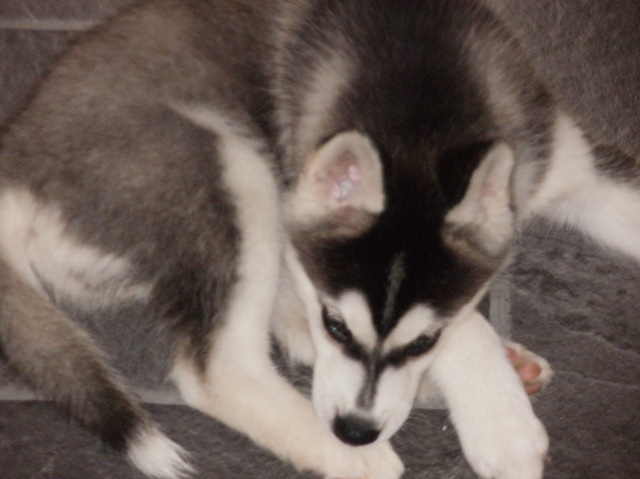 Bath Time
Question
Keiko
Hi we have a 14 week old Siberian named
Bath Time
Question
Keiko
Hi we have a 14 week old Siberian named
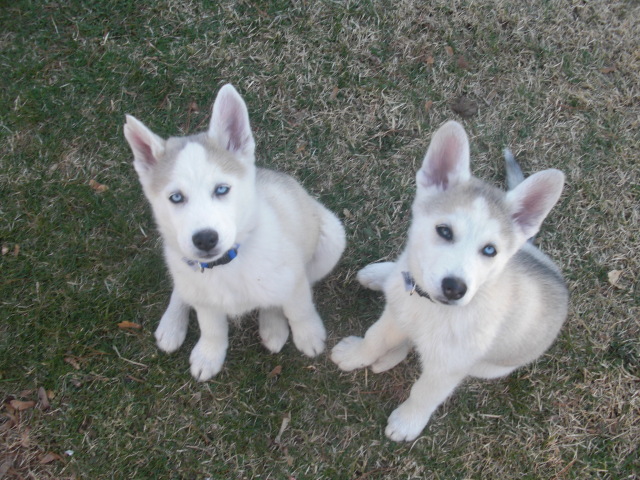 2 12 week old Husky brothers play/fighting
QuestionJasper & Sigmund
QUESTION: Two weeks
2 12 week old Husky brothers play/fighting
QuestionJasper & Sigmund
QUESTION: Two weeks
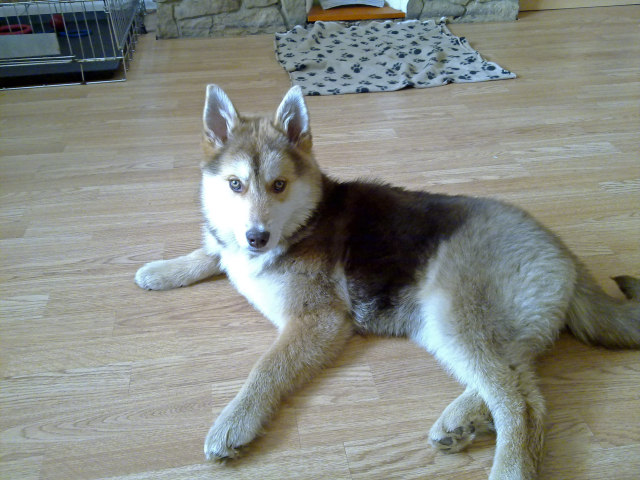 my husky colour
Question
mecca
hi i have recently got my husky mecca. s
my husky colour
Question
mecca
hi i have recently got my husky mecca. s
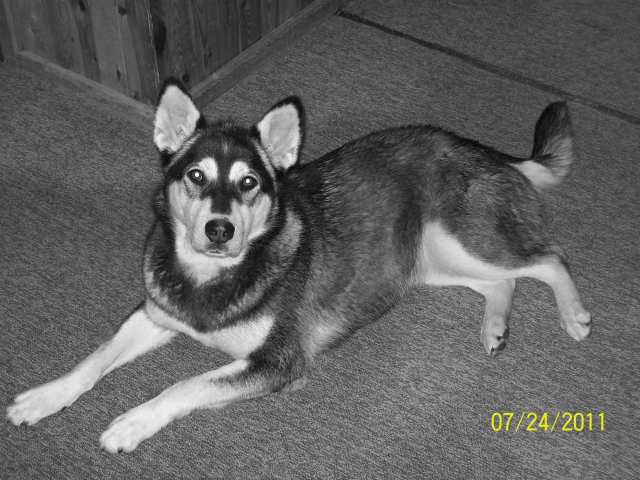 Pregnancy
Question
Diamond in black and w
Is it possible f
Pregnancy
Question
Diamond in black and w
Is it possible f
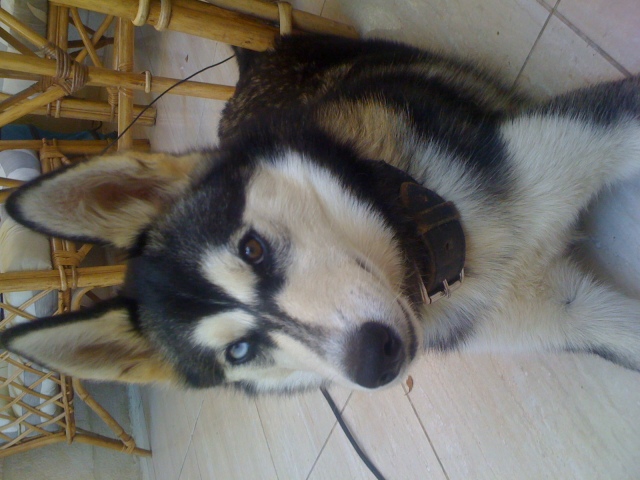 coming when called
QuestionQUESTION: hi, i have a female husky that is app
coming when called
QuestionQUESTION: hi, i have a female husky that is app